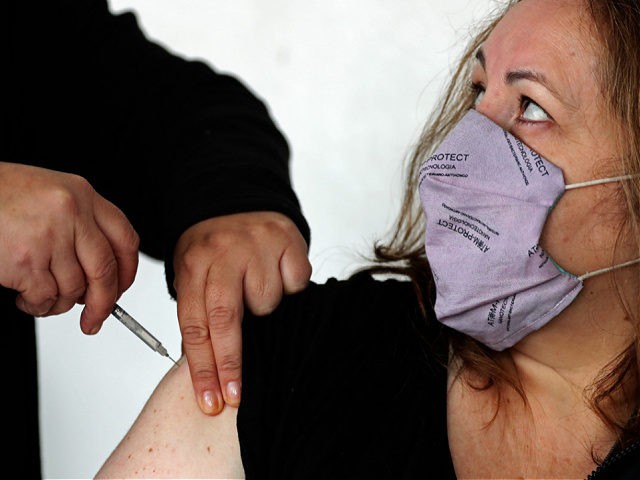The U.S. Centers for Disease Control and Prevention (CDC) is urging vaccinated Americans to “help” unvaccinated friends and family members who have questions about the vaccine, urging them to address “misinformation” and ultimately calling on them to identify the root of their concerns and “help make their vaccination happen.”
“The amount of information—and misinformation—about #COVID19 vaccines can be overwhelming. Help friends and family who have questions about the vaccines by listening to their concerns without judgment and identifying the root of their concerns,” the CDC said in a Wednesday tweet, accompanied by a guide on how to have these discussions with loved ones:
The amount of information—and misinformation—about #COVID19 vaccines can be overwhelming.
Help friends and family who have questions about the vaccines by listening to their concerns without judgment and identifying the root of their concerns. More: https://t.co/tGGql5cDOC. pic.twitter.com/eZO75Hi0aX
— CDC (@CDCgov) July 14, 2021
The guide, last updated April 27, encourages vaccinated individuals to listen to vaccine concerns with “empathy,” acknowledging emotions and trying “not to sound judgmental.”
The CDC encourages the vaccinated individual to ask if they can provide information and “tell them where you get information you trust,” such as the CDC’s website.
The federal health agency ultimately tasks the vaccinated with helping the unvaccinated individual to “find their own reason to get vaccinated”:
Everyone who chooses to get vaccinated does it for a reason—to protect their family, to protect their children, to be less anxious, to visit their parents, or to get back to activities like seeing friends, resuming work, or returning to school. After addressing concerns with empathy and facts, you can steer the conversation from “why not” to the important reasons that matter to them—their “why.” You may choose to share your reasons for getting vaccinated or discuss common goals you may have, like visiting with each other safely. The reasons that someone may choose to get vaccinated will always be those that are most compelling to them personally.
And then, the CDC continues, the vaccinated individual should help close the deal and “make their vaccination happen”:
Once someone decides on their “why,” help them make a commitment to get vaccinated. Help make the path to vaccination shorter, easier, and less stressful for them. Offer to help your family member or friend make a vaccination appointment at a location nearby and, if needed, go with them to the appointment. Offer to help with transportation or to babysit if they need childcare. Remember, every person who chooses to get vaccinated brings us all a step closer to moving past the COVID-19 pandemic. As a trusted messenger to your family and friends, you can play a role in their decision to vaccinate.
Federal health officials working with the Biden administration have continued to urge Americans to get vaccinated despite looming concerns of adverse side effects from the vaccines, including links to heart inflammation conditions and the mRNA vaccines.
This week, the Food and Drug Administration (FDA) added a warning label to the single-dose Johnson & Johnson vaccine due to links to a rare neurological condition, Guillain-Barré Syndrome.
According to a recent Morning Consult poll, nearly half of those who are not vaccinated attribute it to concerns over vaccine development and possible side effects.

COMMENTS
Please let us know if you're having issues with commenting.